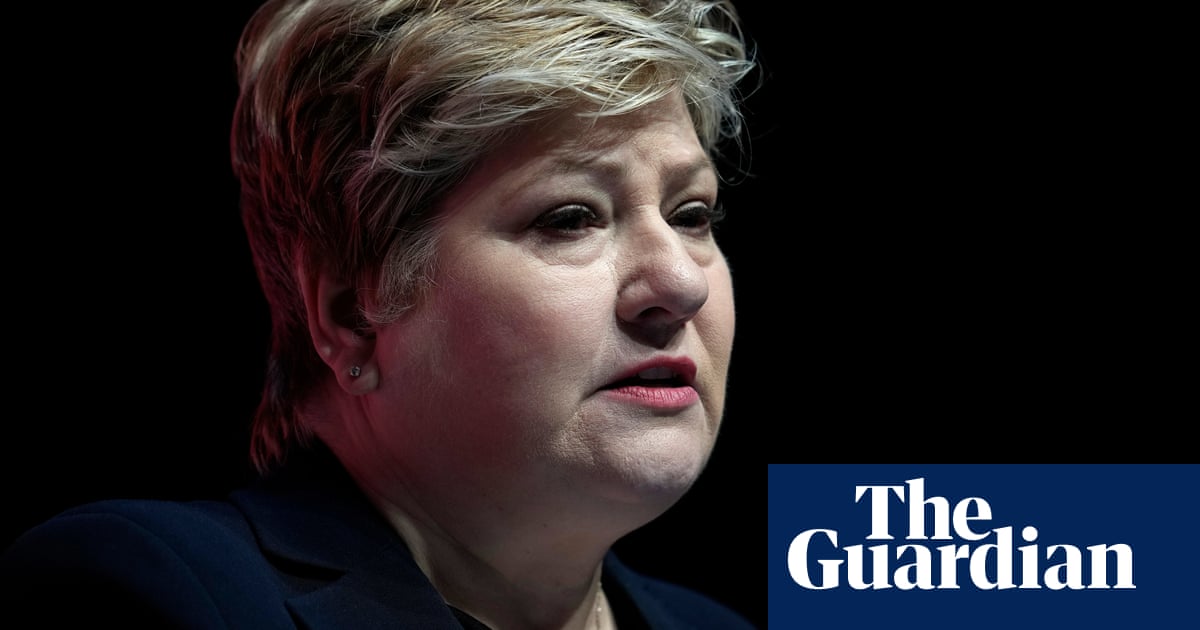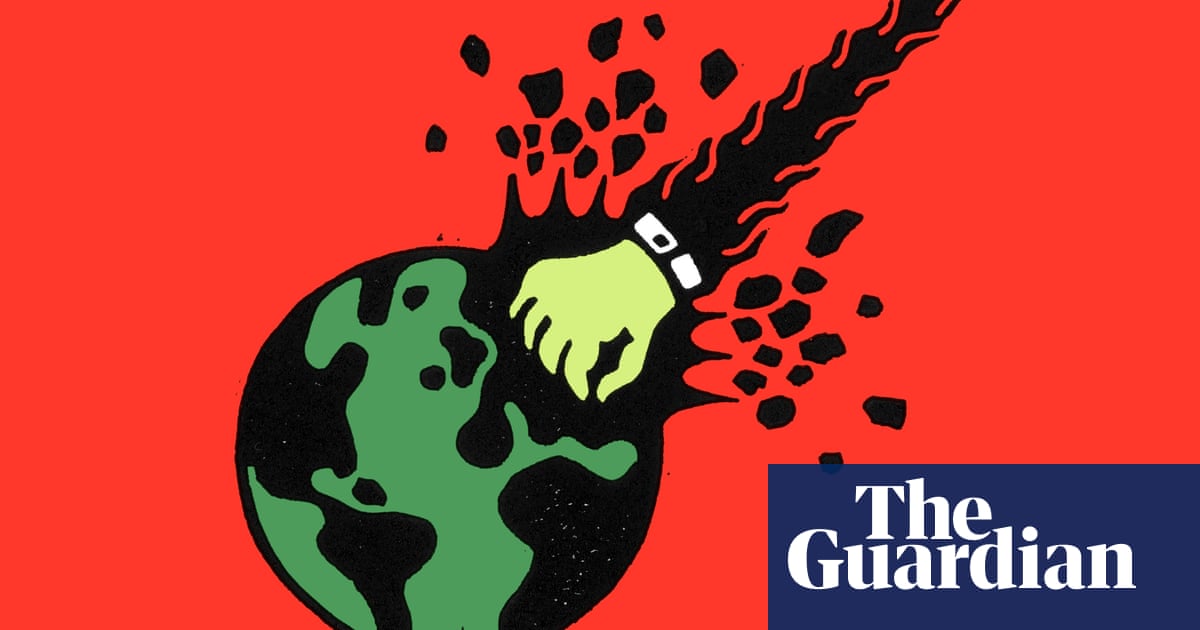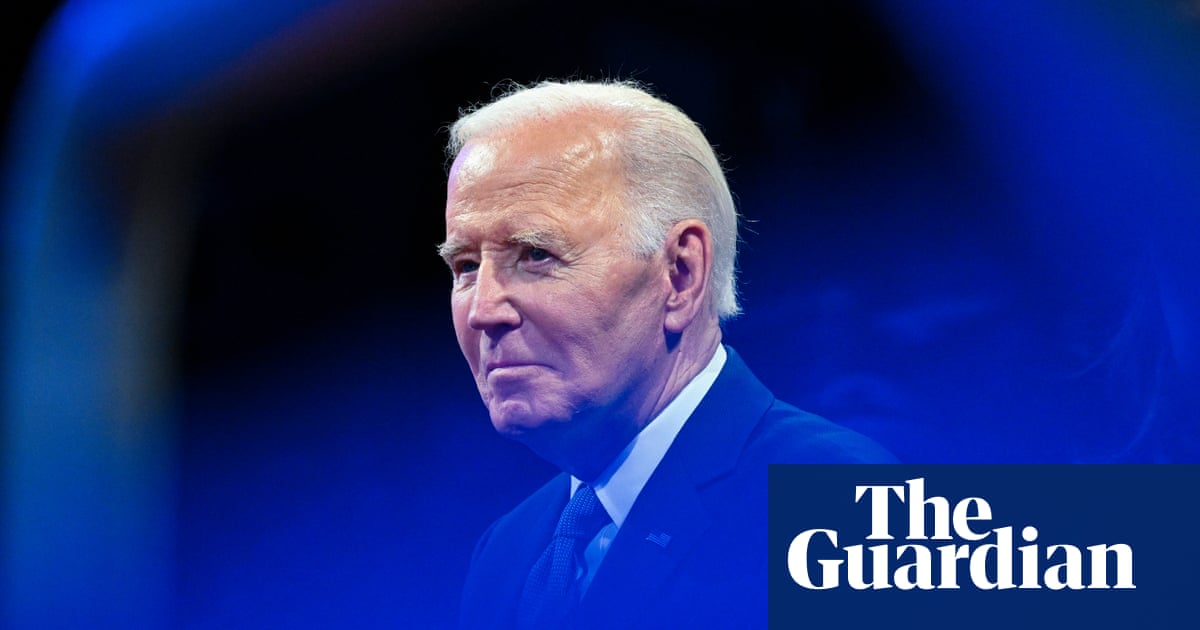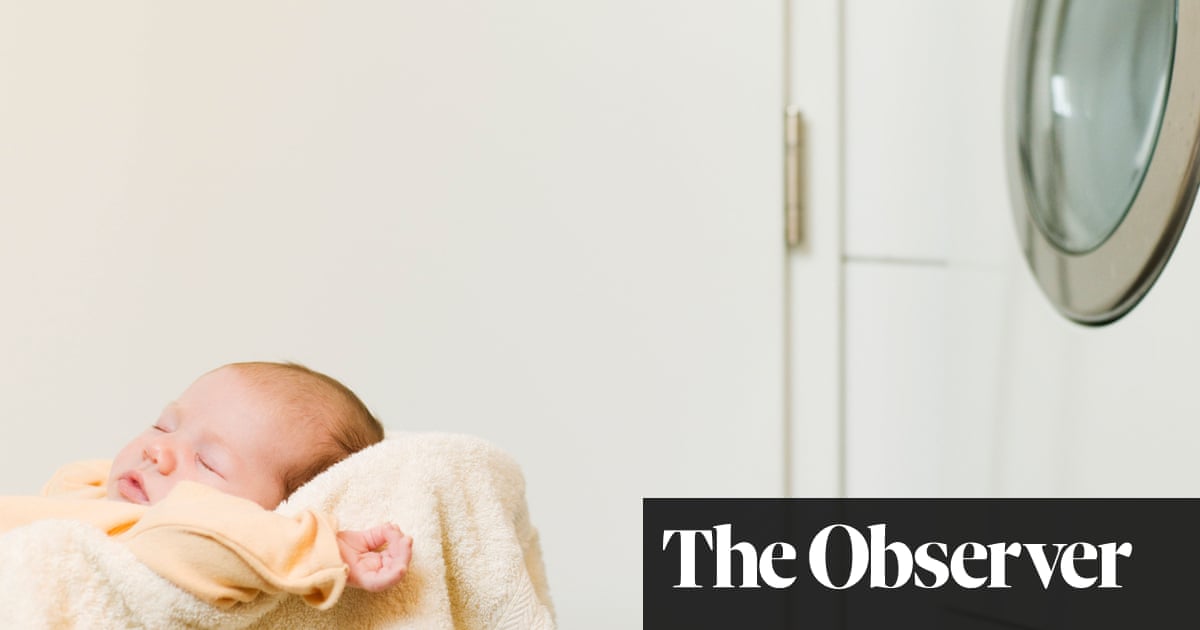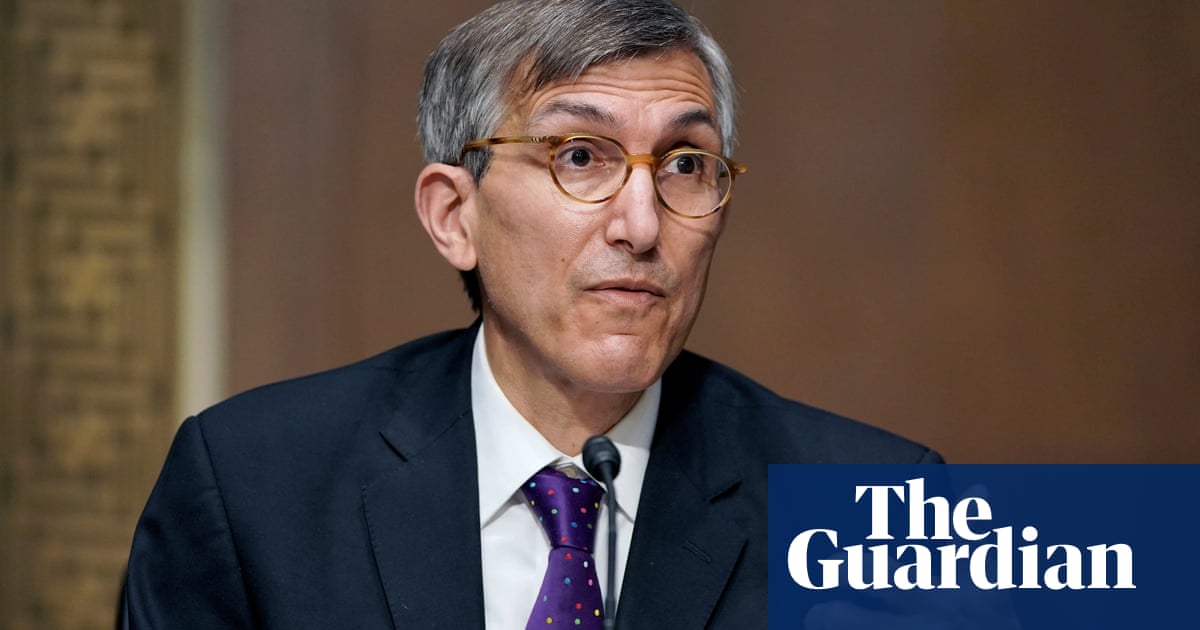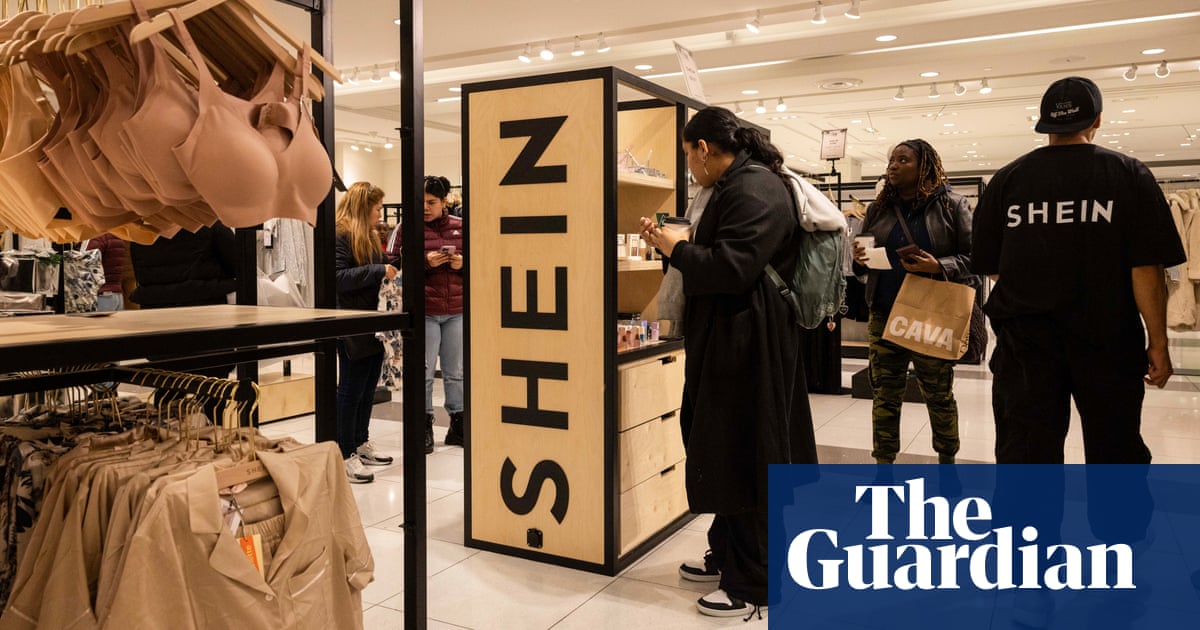Three minutes into its first episode, Apple Cider Vinegar breaks the fourth wall.
“This is a true story based on a lie,” says Kaitlyn Dever, who plays Belle Gibson, to the camera. “Some names have been changed to protect the innocent. Belle Gibson has not been paid for the recreation of her story.”
Then – as Gibson – she pauses, looks away, and mumbles under her breath: “Fuckers.”
This disclaimer is repeated at the start of most episodes of Netflix’s six-part limited series, which is based on the rise and fall of Gibson, a fraudster who built a massive business after faking brain cancer that was miraculously cured by a healthy diet. For creator and writer Samantha Strauss, such a disclaimer felt like an essential inclusion.
“I was having a conversation with a friend whose partner had brain cancer, and they were horrified that I was doing the show – ‘Why would you want to give this woman any more oxygen? Are they being paid for it?’” she says. “I just thought, oh, that’s such an interesting, visceral reaction that is something that a lot of viewers are going to come at it [with] – it’s important to say right upfront that she’s not part of this; she’s not being paid.”
It’s not hard to understand why the idea of Gibson profiting from an adaptation of her story would rankle some. In the early 2010s, she amassed millions of Instagram followers with her inspirational account of how she’d beaten a terminal brain cancer diagnosis with healthy diet. She then launched a successful recipe app called The Whole Pantry, which was championed by Apple; published a cookbook with Penguin; and posted through it all, claiming she was donating much of her profits, then reportedly in excess of A$1m, to various charities.
The kicker, of course, was that Gibson never had cancer. Nor had she donated any significant amount of money – just $7,000 of the $300,000 she had claimed. It was all a spectacular con, one that enraged and captivated Australia – and had real world consequences for her followers who actually had cancer, and were encouraged to shirk conventional medicine in favour of alternative treatments.
Now, Apple Cider Vinegar is taking the tale of Belle Gibson to a global audience. Or, at least, a “true-ish” version of the story, as Netflix has carefully described it in their marketing of the show.
Netflix’s telling of Gibson’s story is “inspired by” the book The Woman Who Fooled The World, written by journalists Beau Donelly and Nick Toscano, who first broke the story about Gibson’s empire of lies in 2015 and published their meticulously researched book about her two years later. Strauss optioned the book and Netflix greenlit the series in 2022.
Both Apple Cider Vinegar and Donnelly and Toscano’s book explore not just Gibson’s story, but the dawn of social media influencers, and the allure and false promises of “wellness”. They also explore the true toll of a cancer diagnosis, and how those who feel unheard or let down by conventional medicine end up scrambling for alternative options.
That wider angle was part of the appeal of the story for Strauss, who “didn’t want to do a story that was just the rise and fall of Belle”.

‘This is a true story’ – or based on one?
Telling the story of a real, living person is legally fraught, particularly in Australia, where defamation laws are strict. Apple Cider Vinegar comes hot on the heels of another Netflix show inspired by a true story: Baby Reindeer, about the life of Scottish comedian Richard Gadd and the woman he alleges stalked him.
When Gadd’s show became a huge hit last year, internet sleuths swiftly uncovered and circulated the identity of Gadd’s real-life alleged stalker. That woman has now been given the green light to proceed with a US$170m defamation lawsuit against Netflix after a judge ruled the show was wrongly billed with “this is a true story” – rather than “based on a true story” – inviting viewers to take the story as fact when some elements were fictionalised.
In terms of Apple Cider Vinegar, a great deal of Donnelly and Toscano’s reporting is recreated faithfully: Gibson’s troubled childhood, her youth spent posting about invented maladies in online forums, and her ascent as an Instagram star. Many of the most unsettling details in the show are scenes taken from their book – like Gibson allegedly faking a seizure at her son’s fourth birthday; crashing a funeral she wasn’t invited to and crying with performative vigour; and the unsuccessful intervention staged by a friend, who tried to get Gibson to confess to her lies before the story broke publicly.

Donnelly and Toscano are characters in the series, albeit not under their real names; and the influencer Jessica Ainscough, who really did have cancer and spruiked alternative medicine as a treatment – with tragic consequences – appears to have inspired the character Milla Blake (played by Alycia Debnam-Carey): a social media darling with whom Gibson forms a parasocial relationship. (Like Milla, Ainscough was advised by doctors to amputate her arm, but chose instead to “treat” her cancer with coffee enemas and juicing.) And there was plenty from the public record to make use of, including Gibson’s infamous 60 Minutes interview, recreated word for word by a turtleneck-clad Dever.
Other parts of the show take what Strauss describes as “creative licence” – including one scene where Gibson locks her young son in his room overnight while he’s sick, and another where she uses cocaine. Similarly, conversations between Gibson and her partner, and some of the other characters, are Strauss’s own inventions.
after newsletter promotion
“I think we do really lean into it and say it honestly – this is true-ish,” says Strauss, who admits she is feeling nervous about finally unveiling the project that has been seven years in development. The meta-ness of it all is not lost on her: “It’s an interesting thing when you’re dealing with someone who has lied and that you’re creating a work that is, in some respects, fiction as well.”

Strauss says that no one involved with Apple Cider Vinegar has made contact with Gibson, and that their legal advice was that they “didn’t have to” speak to its controversial subject; she says the fallout from Baby Reindeer “has not been part of our conversations with Netflix at all”. Guardian Australia has attempted to contact Gibson for comment regarding her depiction in the show, but did not hear back.
But, as Strauss tells it, there are also artistic reasons to keep a distance from the real-life Gibson. “Not having contact with people does give you more licence to create,” she says.
Strauss talks about “my Belle” in explaining her imagining of a woman whose pathology and motivations have always remained elusive. The team spoke to psychologists in the course of their writing, but stopped short of diagnosing Gibson; in the show, she is painted as a longtime fantasist who feigns sickness as a shortcut to receiving attention, sympathy and much yearned-for love.
Apple Cider Vinegar touches on Gibson’s difficult childhood, drawn from Donnelly and Toscano’s book: Gibson claimed she left home at age 12, at one point living with a much older male colleague. How much to humanise its lead character was a delicate balancing act for Strauss.
“I didn’t want to make the answer for my Belle just be ‘a bad childhood’. I wanted it to be more complicated than that,” says Strauss. “But I think that’s the whole game – finding empathy in the writing of it, but not crossing over the line … I never wanted to absolve her of what she did.”

Apple Cider Vinegar never does absolve Gibson, who is by and large depicted as villainous. Whether or not there’s any legal blowback for Netflix, public sympathy for Gibson is likely to be scant. The former influencer was found to have engaged in misleading and deceptive conduct and fined $410,000 in 2017 – but nearly eight years later, her bill has grown to more than $500,000 with penalties and interest, and remains unpaid. The latest reports on Gibson have her claiming to be “adopted” into Melbourne’s Ethiopian community, calling herself Sabontu and speaking in broken English.
Given Gibson’s dubious morals and questionable actions – or perhaps despite them – Strauss says she wrestled with the decision to spotlight her story for Netflix’s global audience.
“A lot. A huge amount, really,” she says. “I don’t want to do work that puts harm into the world … If you’re going to spend seven years on a project, you have to get up every day and throw yourself at the wall. It’s hard and it’s long, and it may not happen.
“The only way to do that is, for me, is to feel like I’m doing something important or have something special to say. And it always felt like that.”
-
Apple Cider Vinegar is on Netflix now

.png) 2 months ago
138
2 months ago
138



